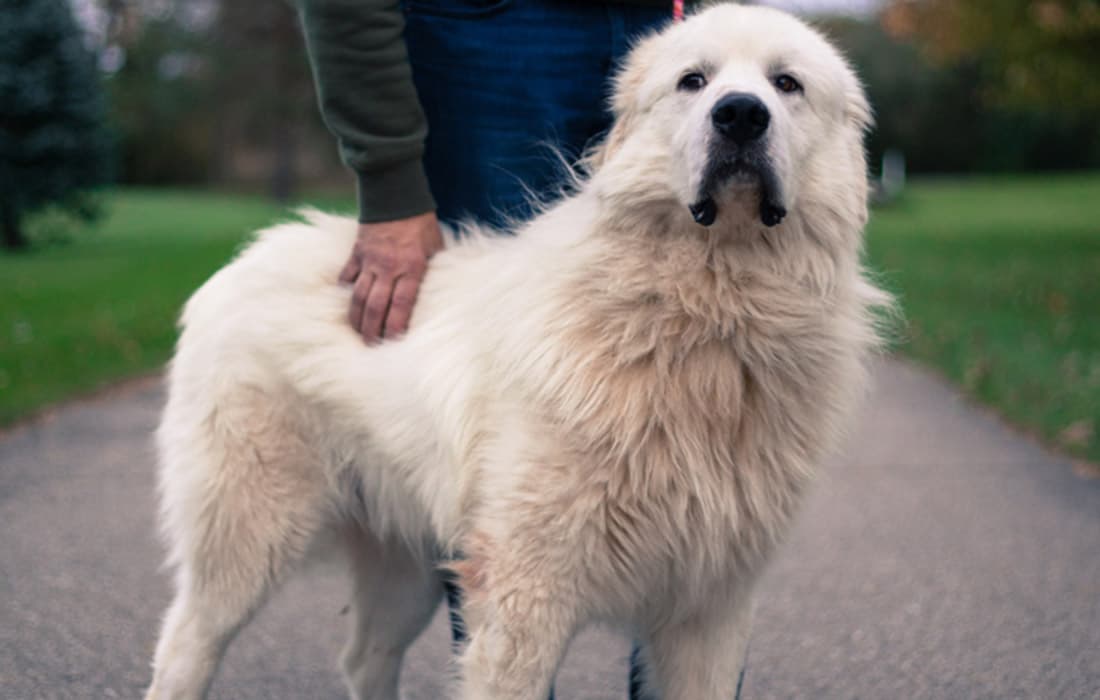Great Pyrenees are 25 to 27 inches tall at the shoulder and weigh 66 to 138 pounds when fully grown. Males are generally larger than females.
Great Pyrenees
Breed Type: Working
Common nicknames: Pyrenean Mountain Dog, Pyr
Coat: Double
Hypoallergenic: No, they will likely trigger allergies.
Temperament: Gentle, affectionate, loyal, protective
Life expectancy: 10-12 years
Color & patterns: White

Great Pyrenees characteristics
Learn about about Great Pyrenees basics like their fur colors, shedding levels, how much grooming they need, and other Great Pyrenees facts.
Average height
25-27 inches (63.5-68.6cm)
Average weight
66-138 pounds (29.9-62.6 kg)
Average lifespan
10-12 years
Exercise needs
Grooming needs
Full-grown size
Good with cats
Good with kids
Training Aptitude
Do Great Pyrenees drool?
Yes, Great Pyrenees drool, though the extent to which they drool varies from dog to dog. Some individuals drool more than others, and factors such as genetics, diet, and overall health can influence the amount of drool produced. Not all Great Pyrenees drool excessively, but it’s a good idea to be prepared for the possibility by keeping a towel handy to wipe their mouth as needed.
Do Great Pyrenees shed?
Yes, Great Pyrenees shed heavily year-round, but especially in the spring and fall when they shed the undercoat of their thick double coat. Brushing a few times a week can help manage shedding and keep the coat healthy.
Can Great Pyrenees be black?
No, purebred Great Pyrenees cannot be black. According to the American Kennel Club breed standard, Great Pyrenees are white or white with markings of gray, badger, reddish brown, or varying shades of tan. The colored markings may appear on the ears, head, tail, and as a few body spots but cannot cover more than one-third of the body.
Are Great Pyrenees hypoallergenic?
No, Great Pyrenees are not hypoallergenic. While no dog breed is entirely hypoallergenic, some breeds produce fewer allergens than others, typically those with minimal shedding and less dander. The Great Pyrenees, with its heavy shedding and dense coat, is not one of those breeds.
How long do Great Pyrenees live?
Great Pyrenees generally live between 10 and 12 years, although individual dogs might live longer or shorter lives depending on various factors such as genetics, diet, and overall health care.
When do Great Pyrenees stop growing?
Great Pyrenees are a large and slow-maturing breed. Most Great Pyrenees reach their full adult size by the time they are around two years old, although they might continue to fill out and develop muscle mass beyond that age. Great Pyrenees puppies experience their most rapid growth during their first year of life, but their growth plates don’t close until they are around 18 to 24 months old.
Great Pyrenees history
Learn about where this Great Pyrenees came from!
What were Great Pyrenees bred for?
Great Pyrenees were originally bred to work as livestock guardian dogs in the Pyrenees Mountains. Their primary role was to protect flocks of sheep and other livestock from predators, such as wolves and bears, that roamed the mountainous regions. They would live among the flock, patrolling the perimeter and warding off potential threats.
Where are Great Pyrenees from?
Great Pyrenees, also known as Pyrenean Mountain Dogs, originate from the Pyrenees Mountains, which form a natural border between France and Spain. The Great Pyrenees has a long history as a flock guardian in this mountainous area, where it has been bred for centuries to protect sheep and other livestock from predators.
Great Pyrenees temperament
Learn about about the Great Pyrenees temperament and how well they fit into your lifestyle, home environment, and family.
Are Great Pyrenees good with kids?
Yes, Great Pyrenees are good with kids, especially when they are raised together from a young age. Great Pyrenees are typically gentle, patient, and protective, making them good companions for kids. They are also very calm, which can be reassuring for children.
As with any dog breed, supervision is important, especially with younger children, to ensure that interactions are safe and positive for both the child and the dog. It’s important for pet parents to teach their dogs how to gently interact with children and for parents to teach children how to safely interact with dogs.
Are Great Pyrenees aggressive?
No, Great Pyrenees are not aggressive dogs, although they might show protective behaviors, such as barking or standing between their family and perceived threats. Proper training and socialization play a significant role in shaping a Great Pyrenees’ temperament and behavior.
If you are concerned by any signs of aggression or reactivity in your dog, be sure to address it promptly with the help of a professional trainer or behaviorist. Pain, discomfort, or underlying medical conditions can sometimes contribute to changes in a dog’s behavior, so it may also be worth visiting a vet to rule out their health as a cause for their behavior.
Are Great Pyrenees easy to train?
No, Great Pyrenees are not easy to train in the traditional sense. They are intelligent dogs but are also independent and somewhat stubborn, which can make them challenging to train. Additionally, their protective instincts and strong will can lead to assertive behavior.
However, training any dog takes substantial time and effort, regardless of breed. Early socialization and obedience training are essential for any dog, including the Great Pyrenees, to ensure they develop into well-behaved and manageable adults. It’s important to establish clear rules and boundaries from a young age.
Positive reinforcement techniques, such as treats, praise, and rewards, tend to work best with this breed, as they respond well to motivation and encouragement.
Do Great Pyrenees like water?
No, Great Pyrenees do not like water and swimming as much as some other breeds. Many Great Pyrenees are somewhat indifferent or even wary of water. Of course, there are always exceptions, and some Great Pyrenees might enjoy playing in the water or swimming.
Are Great Pyrenees nocturnal?
No, Great Pyrenees are not strictly nocturnal, but they exhibit more alertness and activity during evening and nighttime hours compared to other breeds. This behavior stems from their background as livestock guardian dogs, where they would patrol and protect their flocks during the night when predators are more active.
With proper training and conditioning, Great Pyrenees can adapt to a diurnal lifestyle and be active and alert during the day while resting at night, particularly when living in a domestic setting where their primary role is that of a family pet.
Do Great Pyrenees like the cold?
Yes, Great Pyrenees like the cold and enjoy spending time outdoors in cooler climates. Their ancestors originated in the Pyrenees Mountains, a region that has harsh winter conditions. The breed’s dense undercoat and longer outer coat keep them warm in cold weather, making them quite comfortable in snow, ice, and cold winds. However, always provide access to warm and dry shelter during particularly harsh weather.
Are Great Pyrenees diggers?
No, Great Pyrenees are not excessive diggers compared to some other breeds, but digging is a natural behavior for dogs, so some Great Pyrenees might dig to create a comfortable resting spot, to cool off in hot weather, to alleviate boredom, or to escape from an enclosed area.
To prevent unwanted digging behavior, provide your Great Pyrenees with plenty of mental and physical stimulation, including regular exercise, interactive play sessions, chew toys, puzzle toys, and other enrichment activities.
Are Great Pyrenees good therapy dogs?
Some Great Pyrenees are good therapy dogs, but the breed is not as commonly used in therapy work as some other breeds. Great Pyrenees are gentle and calm, but compared to some other breeds, they aren’t as eager to please or as friendly with strangers. Additionally, their large size can be a consideration when working as therapy dogs, as they might be intimidating to some individuals, especially children or those with limited mobility.
Can you shave a Great Pyrenees dog?
No, you should not shave a Great Pyrenees. Their thick double coat serves several important functions, including insulation from both cold and hot weather, protection from sunburn, and regulation of body temperature. Shaving a Great Pyrenees can disrupt their natural coat insulation and might lead to discomfort, skin irritation, and other issues.
Additionally, shaving a double-coated breed like the Great Pyrenees does not necessarily reduce shedding. In fact, it can sometimes lead to increased shedding or changes in the texture and appearance of the coat as it grows back.
Do Great Pyrenees bark a lot?
Yes, Great Pyrenees bark, especially when they perceive a threat to their territory or flock. As livestock guardian dogs, barking is one of the ways Great Pyrenees communicate and warn potential predators to stay away. Early training and socialization can help teach them appropriate barking behavior and reduce unnecessary noise.
Are Great Pyrenees good family dogs?
Yes, Great Pyrenees are good family dogs under the right circumstances. They are gentle, affectionate, loyal, and protective dogs. When properly socialized and trained from a young age, they can be calm, patient, and loving companions for families. They thrive in homes where they are treated as part of the family and provided with love, attention, and opportunities for exercise and mental stimulation.
Due to their large size and protective instincts, Great Pyrenees need lots of space to move around, which means they are not well-suited for small spaces. Their protective instincts, while valuable, can lead to excessive barking and territoriality if not properly managed. Early socialization and training are crucial to teach them when it’s appropriate to alert and when to remain calm.
Are Great Pyrenees good with cats?
Yes, Great Pyrenees are usually good with cats, especially if they are introduced to them at a young age and raised together in the same household. Individual temperaments can vary, so some Great Pyrenees may be more tolerant of cats than others. As livestock guardians, Great Pyrenees sometimes have strong instincts to chase smaller animals, including cats.
Early socialization and training can help minimize any potential issues and teach the Great Pyrenees to coexist peacefully with cats. It’s also important to provide plenty of supervision and positive reinforcement to encourage calm and appropriate behavior around the cat.
Are Great Pyrenees good with other dogs?
Some Great Pyrenees are good with other dogs, but this can vary. Some Great Pyrenees display assertive or dominant behavior, especially toward dogs of the same sex. Even if they are cordial with other dogs, they might not exhibit the same playfulness or desire for social interaction as some other breeds. As with any breed, early socialization is crucial to ensure that Great Pyrenees are well-adjusted and comfortable around other dogs.
Are Great Pyrenees smart?
Yes, Great Pyrenees are smart dogs. They might not exhibit the same level of obedience or eagerness to please as some other breeds, but they are capable of learning and can excel in various tasks when provided with the right training and motivation. Great Pyrenees are known for their problem-solving abilities, independence, and keen instincts. They can adapt to various situations, making them versatile companions.
Are Great Pyrenees friendly?
Yes, Great Pyrenees are friendly and well-mannered when properly socialized and trained from a young age. They are loyal, devoted, and affectionate with their families but usually more reserved or aloof with strangers.
Are Great Pyrenees affectionate?
Yes, Great Pyrenees are affectionate toward their families, though they aren’t overly friendly to strangers. They enjoy receiving attention and affection from their families and often reciprocate with cuddles, leaning against their humans, and other displays of affection.
Great Pyrenees health
Learn about about the Great Pyrenees health outlook and what diseases they may be prone to at various stages of their life.
Do Great Pyrenees have health problems?
The Great Pyrenees is a relatively healthy breed, but like all purebred dogs, they can be prone to certain health issues. Some common health problems that might affect Great Pyrenees include:
Hip dysplasia: A hereditary condition where the hip joint doesn’t develop properly, leading to pain and arthritis.
Elbow dysplasia: Similar to hip dysplasia, elbow dysplasia affects the elbow joint, causing lameness and pain.
Cataracts: A common eye condition that causes cloudiness in the eye and obstructs vision
Progressive retinal atrophy: A progressive degenerative disease affecting the retina that eventually leads to blindness.
Bloat (gastric dilatation-volvulus): A life-threatening condition where the stomach twists and fills with air, cutting off blood flow. Bloat or suspected bloat is a medical emergency.
Osteosarcoma: A type of bone cancer that can affect large and giant breeds like the Great Pyrenees.
Patellar luxation: A condition where the kneecap dislocates from its normal position, causing lameness and pain.
Degenerative myelopathy: A progressive disease of the spinal cord that can lead to weakness and paralysis in the hind limbs.
Heart conditions: Great Pyrenees are prone to certain heart conditions, such as dilated cardiomyopathy (DCM), a disease that affects the heart muscle’s ability to pump blood effectively
Popular Great Pyrenees mixes
Some common Great Pyrenees mixes include:
Golde Pyrenees (Great Pyrenees + Golden Retriever)
Germanees (Great Pyrenees + German Shepherd)
Swissneese (Great Pyrenees + Great Swiss Mountain Dog)
Pyredoodle (Great Pyrenees + Poodle)
Pyrador (Great Pyrenees + Labrador Retriever)

Find Great Pyrenees puppies near you
Adopting a Great Pyrenees
Learn about acquiring a Great Pyrenees - the pros and cons of adopting versus going through a breeder, and associated costs.
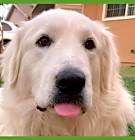
Bing Bing
Great Pyrenees
Male, 4 yrs 4 mos
Los Angeles, CA
Not good with dogs
Not good with cats
Needs experienced adopter
House-trained
Shots are up-to-date

Tomo IN LA!!
Great Pyrenees Jindo
Male, 8 yrs
Los Angeles, CA
Good with dogs
Good with cats
Spayed or Neutered
Shots are up-to-date
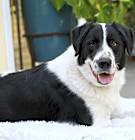
RODEO
Great Pyrenees Australian Shepherd
Male, adult
North Hollywood, CA
Not good with dogs
Not good with cats
Spayed or Neutered
Shots are up-to-date

Brody Contact-Sylva/Rachel
Great Pyrenees
Male, 2 yrs 5 mos
Studio City, CA
Good with dogs
Not good with cats
House-trained
Spayed or Neutered
Shots are up-to-date

Casper
Great Pyrenees
Male, young
North Hollywood, CA
Good with dogs
Good with cats
Needs special attention
Needs experienced adopter
House-trained
Spayed or Neutered
Shots are up-to-date
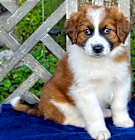
Betty
Great Pyrenees Border Collie
Female, 4 mos
Valley Glen, CA
Good with dogs
Good with cats
Spayed or Neutered
Shots are up-to-date

Oliver
Great Pyrenees
Male, 1 yr 9 mos
Valley Glen, CA
Good with dogs
Not good with cats
House-trained
Spayed or Neutered
Shots are up-to-date
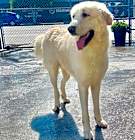
Brody
Great Pyrenees
Male, young
Santa Monica, CA
Good with dogs
Not good with cats
House-trained
Spayed or Neutered
Shots are up-to-date

Bing Bing
Great Pyrenees
Male, 4 yrs 4 mos
Los Angeles, CA
Not good with dogs
Not good with cats
Needs experienced adopter
House-trained
Shots are up-to-date

Tomo IN LA!!
Great Pyrenees Jindo
Male, 8 yrs
Los Angeles, CA
Good with dogs
Good with cats
Spayed or Neutered
Shots are up-to-date

RODEO
Great Pyrenees Australian Shepherd
Male, adult
North Hollywood, CA
Not good with dogs
Not good with cats
Spayed or Neutered
Shots are up-to-date

Brody Contact-Sylva/Rachel
Great Pyrenees
Male, 2 yrs 5 mos
Studio City, CA
Good with dogs
Not good with cats
House-trained
Spayed or Neutered
Shots are up-to-date

Casper
Great Pyrenees
Male, young
North Hollywood, CA
Good with dogs
Good with cats
Needs special attention
Needs experienced adopter
House-trained
Spayed or Neutered
Shots are up-to-date

Betty
Great Pyrenees Border Collie
Female, 4 mos
Valley Glen, CA
Good with dogs
Good with cats
Spayed or Neutered
Shots are up-to-date

